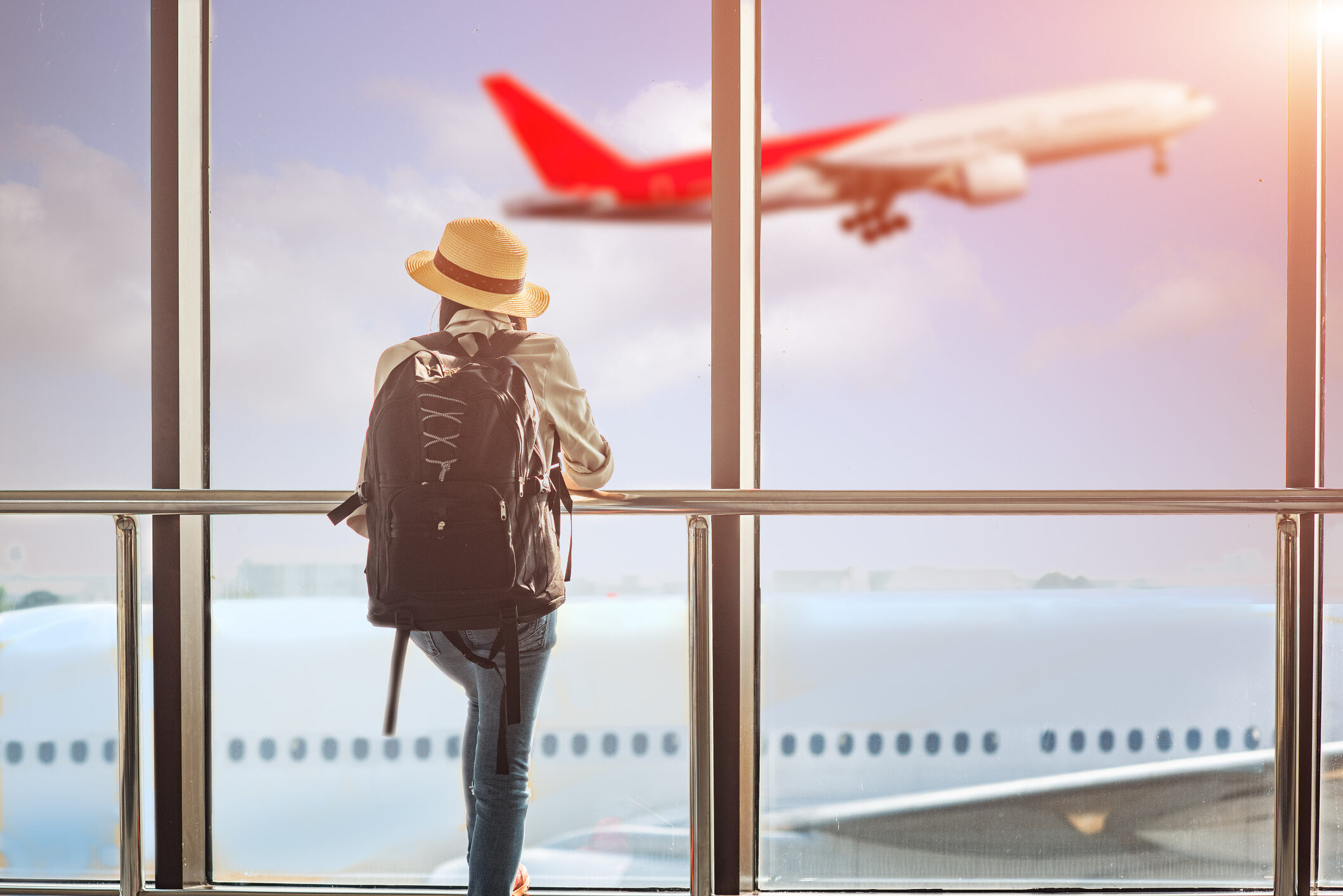
Traveling opens up a world of adventure, culture, and new experiences. Ever wondered why people are so passionate about exploring new places? Travel isn't just about seeing new sights; it's about immersing yourself in different cultures, tasting exotic foods, and meeting people from all walks of life. Whether you're a seasoned globetrotter or planning your first trip, there's always something new to learn. Did you know that travel can boost your creativity and improve your mental health? Or that some countries have unique customs that might surprise you? Buckle up as we dive into 36 fascinating facts about travel that will inspire your wanderlust and maybe even teach you a thing or two!
Key Takeaways:
- Traveling can boost creativity and improve heart health, making it not only fun but also beneficial for your mind and body.
- The environmental impact of travel is significant, so choosing eco-friendly options like trains and supporting conservation efforts through eco-tourism can help protect our planet.
The Wonders of Travel
Traveling opens up a world of adventure, culture, and learning. Whether you're a seasoned globetrotter or planning your first trip, these facts about travel will inspire and inform you.
-
Traveling boosts creativity. Experiencing new cultures and environments can enhance creative thinking. Exposure to different traditions and ways of life broadens your perspective.
-
The longest flight in the world lasts over 18 hours. Singapore Airlines operates a non-stop flight from Singapore to Newark, covering approximately 9,534 miles.
-
France is the most visited country. With its rich history, cuisine, and landmarks like the Eiffel Tower, France attracts millions of tourists annually.
-
Travel can improve heart health. Studies show that taking vacations can reduce the risk of heart disease by lowering stress levels.
Historical Travel Facts
Travel has evolved significantly over the centuries. Here are some intriguing historical facts about travel.
-
The first travel agency was established in 1841. Thomas Cook founded the first travel agency, organizing a trip for 540 people from Leicester to Loughborough.
-
The Grand Tour was a rite of passage. In the 17th and 18th centuries, young European aristocrats embarked on a Grand Tour of Europe to complete their education.
-
The Orient Express began service in 1883. This luxury train connected Paris to Istanbul, offering a glamorous way to travel across Europe.
-
The first commercial flight took place in 1914. The St. Petersburg-Tampa Airboat Line flew the first scheduled passenger airline service.
Unique Travel Destinations
Some places on Earth are so unique that they stand out as must-visit destinations. Here are a few that might surprise you.
-
Salar de Uyuni in Bolivia is the world's largest salt flat. Spanning over 4,000 square miles, it creates a mirror effect when covered with water.
-
The Maldives is the flattest country. With an average ground level of just 4 feet 11 inches above sea level, it's a paradise for beach lovers.
-
Antarctica has no permanent residents. Only scientists and researchers live there temporarily, making it one of the most remote places to visit.
-
Bhutan measures its success by Gross National Happiness. This Himalayan kingdom prioritizes the well-being of its citizens over economic growth.
Travel and Wildlife
Traveling offers a chance to see incredible wildlife in their natural habitats. Here are some fascinating facts about travel and wildlife.
-
The Great Migration in Africa is the largest animal migration. Over 1.5 million wildebeest, along with hundreds of thousands of zebras and gazelles, migrate across the Serengeti and Maasai Mara.
-
Galápagos Islands inspired Darwin's theory of evolution. The unique species found there led Charles Darwin to develop his groundbreaking theory.
-
Australia has more kangaroos than people. With an estimated 50 million kangaroos, they outnumber the human population of Australia.
-
The Amazon Rainforest is home to 10% of the world's known species. This vast jungle is a biodiversity hotspot, teeming with unique flora and fauna.
Travel Technology
Technology has revolutionized the way we travel. From booking flights to navigating new cities, here are some facts about travel technology.
-
The first online booking system was introduced in 1960. American Airlines' SABRE system allowed travel agents to book flights electronically.
-
GPS was originally developed for military use. Now, it's an essential tool for travelers, helping with navigation and location tracking.
-
Virtual reality can offer travel experiences. VR technology allows people to explore destinations virtually, providing a taste of travel without leaving home.
-
Mobile apps have transformed travel planning. Apps like Google Maps, Airbnb, and TripAdvisor make it easier to plan and enjoy trips.
Cultural Travel Facts
Traveling exposes you to diverse cultures and traditions. Here are some cultural travel facts that highlight the richness of global diversity.
-
Japan has more than 5 million vending machines. These machines sell everything from snacks to clothing, reflecting the country's love for convenience.
-
India has the world's largest postal network. With over 150,000 post offices, it ensures connectivity across the vast country.
-
Spain hosts the world's largest food fight. La Tomatina, held in Buñol, involves thousands of participants throwing tomatoes at each other.
-
The Philippines celebrates the longest Christmas season. Festivities start in September and last until January, showcasing the country's festive spirit.
Travel and Health
Traveling can have significant impacts on your health, both positive and negative. Here are some facts about travel and health.
-
Jet lag is worse when traveling east. Your body finds it harder to adjust to losing time than gaining it, making eastward travel more challenging.
-
Traveling can boost your immune system. Exposure to different environments and microbes can strengthen your body's defenses.
-
Altitude sickness affects travelers at high elevations. Symptoms include headaches, nausea, and fatigue, often occurring above 8,000 feet.
-
Walking tours can improve mental health. Exploring a city on foot can reduce stress and increase feelings of well-being.
Environmental Impact of Travel
Traveling has both positive and negative effects on the environment. Here are some facts about the environmental impact of travel.
-
Air travel contributes to carbon emissions. Flights account for about 2.5% of global CO2 emissions, prompting a push for more sustainable travel options.
-
Eco-tourism promotes conservation. Visiting natural areas responsibly can support conservation efforts and local communities.
-
Cruise ships produce significant waste. A large cruise ship can generate up to 210,000 gallons of sewage weekly, highlighting the need for better waste management.
-
Traveling by train is more eco-friendly. Trains emit less CO2 per passenger mile compared to cars and planes, making them a greener travel option.
Fun Travel Facts
Traveling is full of fun and quirky facts that can make your journeys even more interesting. Here are some fun travel facts to entertain you.
-
The shortest commercial flight lasts just 90 seconds. The flight between Westray and Papa Westray in Scotland covers a distance of 1.7 miles.
-
Venice has over 400 bridges. This Italian city, built on a network of canals, relies on bridges to connect its many islands.
-
Iceland has no mosquitoes. Despite its many lakes and wetlands, the country's cold climate prevents mosquitoes from thriving.
-
The world's most remote post office is in Antarctica. Port Lockroy, operated by the UK, allows visitors to send postcards from the icy continent.
Final Thoughts on Travel Facts
Traveling opens up a world of fascinating facts and experiences. From the longest flight to the most visited city, these tidbits give a glimpse into the wonders of exploring new places. Knowing that Iceland has no mosquitoes or that Japan has cat islands adds a layer of excitement to planning your next trip. These facts not only entertain but also educate, making your journeys more enriching. Whether you're a seasoned traveler or just starting, these nuggets of information can inspire your next adventure. Keep these facts in mind, and you'll find yourself more connected to the places you visit. Travel isn't just about seeing new sights; it's about understanding the world a little better. So pack your bags, and let these facts guide your way to unforgettable experiences. Happy travels!
Frequently Asked Questions
Was this page helpful?
Our commitment to delivering trustworthy and engaging content is at the heart of what we do. Each fact on our site is contributed by real users like you, bringing a wealth of diverse insights and information. To ensure the highest standards of accuracy and reliability, our dedicated editors meticulously review each submission. This process guarantees that the facts we share are not only fascinating but also credible. Trust in our commitment to quality and authenticity as you explore and learn with us.


